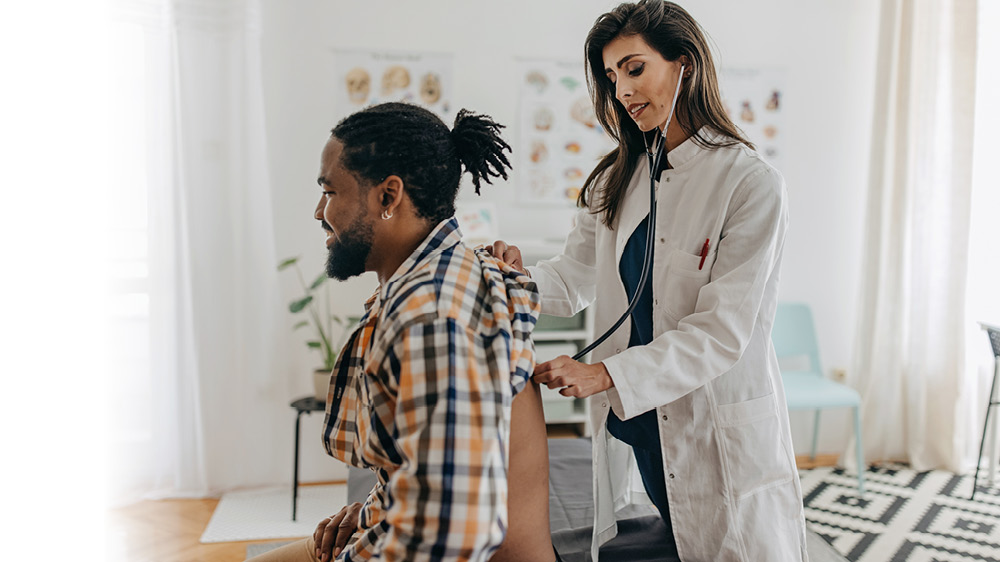Tuberculosis (TB) is a dangerous infection that mainly affects the lungs. TB is a bacterial disease caused by Mycobacterium tuberculosis and can be fatal if untreated. The CDC reported 7,882 cases in 2021. Here are the answers to your questions about TB.
How is TB contracted?
If you have TB in your lungs or throat, when you cough or speak bacteria spreads through the air. People nearby can breathe in the bacteria. From there, it can settle in lungs and spread to the rest of the body through the blood.
If you have TB, you are most likely to spread it to people you spend time with every day. You should quarantine until you are no longer infectious to prevent further spread.
Symptoms and signs of pulmonary TB
TB symptoms depend on where the bacteria are growing. Typically, TB grows in the lungs. Symptoms include:
- Bad cough lasting three weeks or more.
- Coughing up blood or sputum (phlegm coughed up from the lungs).
- Fever and chills.
- Night sweats.
- Poor appetite.
- Unintentional weight loss.
- Weakness or fatigue.
TB disease in other body parts can cause other symptoms.
Who is at high risk for TB?
If you are at a higher risk of contracting TB, you should be tested for active TB infections. This includes:
- If you came in close contact with a person with infectious TB.
- If you who have immigrated from areas with high TB rates.
- Groups with high TB transmission, such as unhoused people, injection drug users and persons with HIV infection.
- Persons who work or reside in facilities or institutions, including hospitals, homeless shelters, correctional facilities, nursing homes and residential homes for those with HIV.
What does TB treatment look like?
Should you test positive for active TB, it is necessary to quarantine immediately and begin antibiotic treatment.
Some people may require a long treatment plan with multiple antibiotic courses.
- Pulmonary TB treatment usually lasts six months.
- Extra-pulmonary TB treatment can last 9-12 months.
It is important to complete the full antibiotic treatment and take every dose. Stopping treatment early can allow bacteria to continue to multiply or become resistant to antibiotics.
If you think you are experiencing TB, contact your provider or local health department immediately.


